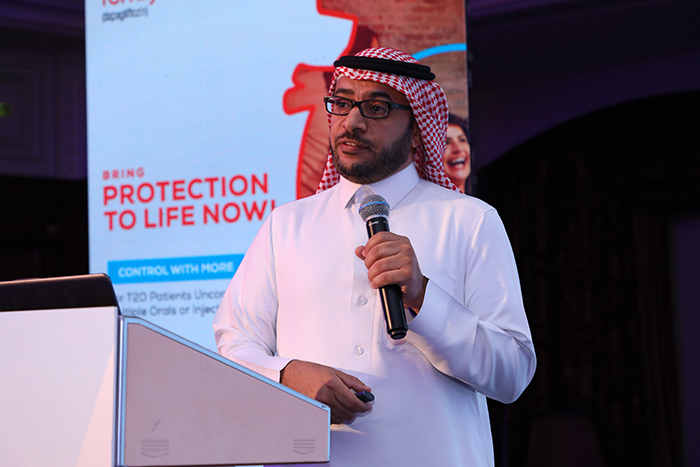Local and international experts recently came together in Riyadh to highlight the challenges patients suffering from chronic kidney disease (CKD) face. At an event focused on tackling unmet needs in CKD, experts revealed how CKD is often referred to as a “silent disease” and significantly contributes to morbidity and mortality.
Almost 2.6 million people suffer from CKD in the Kingdom of Saudi Arabia (KSA)1. Most patients do not experience any symptoms until the disease has progressed, and as few as 10 per cent of adults with CKD are diagnosed, even in stage three of the disease progression2,3. It is reported that 9 out of 10 people with CKD do not know they have it—in both developed and developing countries4.
Speaking about the importance of being diagnosed as early as possible, Prof. Abdulrahman Al-Shaikh, Professor of Medicine at King Abdulaziz University, Consultant Endocrinologist at Dr Soliman Fakeeh Hospital and Chairman of the Saudi Scientific Diabetes Society, stressed: “When patients experience CKD, they lose the ability to filter waste and fluid out of their blood. Damage to the kidneys cannot be reversed. But if doctors find CKD early, there are ways to keep the damage from getting worse, such as following a kidney-friendly eating plan, being active and taking certain medicines.”
Adding to this, Prof. Matthew R. Weir, M.D, attending physician and Director of the Division of Nephrology in the Department of Medicine at the University of Maryland Hospital, Baltimore and Professor of Medicine at the University of Maryland School of Medicine, shared: “CKD causes lasting damage to the kidneys, which can get worse over time. If the damage is severe, kidneys may stop working completely, leading to kidney failure and requiring dialysis or a kidney transplant. Therefore, accessibility to the right treatment is key for patients to manage their health and ensure they get the care they need.”
Diabetes is a significant risk factor for CKD and results in 42 per cent of the cases. But, 58 per cent of patients suffering from CKD are nondiabetic, and it can be caused by factors such as hypertension (5), cardiovascular disease and increased age.
Dr. Abdullah Almalki, Section Head of Nephrology, Consultant of Nephrology & Kidney Transplantation, Department of medicine, King Abdulaziz Medical City, Jeddah, said: “There have been positive and encouraging strides made in the treatment for CKD. Dapagliflozin is now indicated for the treatment of CKD in patients with or without diabetes, ensuring they can get access to the care they need. It is the first therapy approved in 20 years to slow the progression of CKD. New breakthroughs like these are redefining the standard of care for thousands of people in the Kingdom and giving new hope to those living with CKD.”
Prof. Weir concluded: “Many patients barely understand what the kidneys do, let alone what having CKD means. The only thing they may know about kidney disease is the threat of dialysis. Therefore, through early screening programmes, physicians can offer patients the hope that comes with early intervention – slowing disease progression and prolonging dialysis-free living.”
Since CKD is a progressive disease that often causes no symptoms until it is advanced, many patients do not realize they have it until they are approaching kidney failure. Here are three easy steps patients can follow to lower the chances of suffering from the disease – Check your risk factors, Know your kidney numbers, and Discuss with your doctor.


COMMENTS